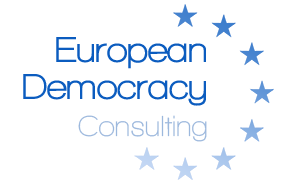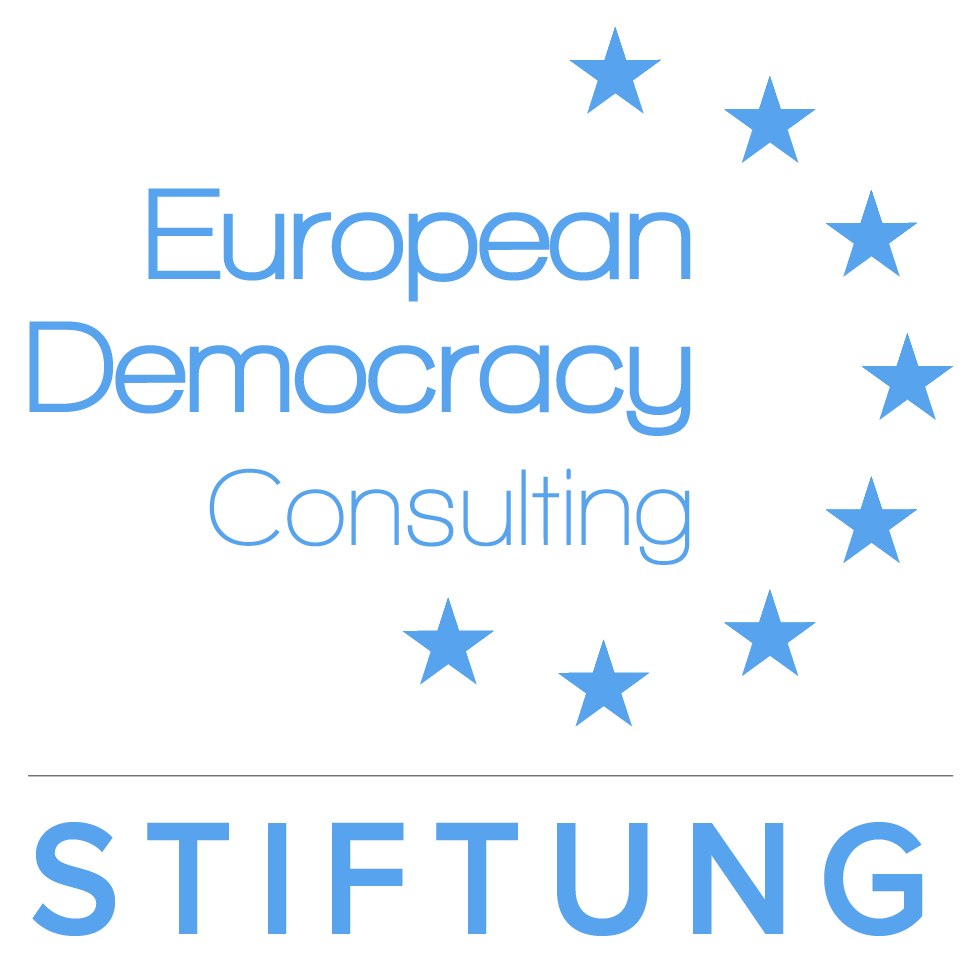You have the feeling that Europeans are always at the polls? It’s not just you, and it’s not just a feeling. However, it turns out we are never voting together.
As part of our studies on European democracy and on ways to improve it, we have explored the issues of the EU’s electoral law, of the East-West divide, of European parties (in a private report to a client), and of the results of European elections as seen from the perspective of European parties.
Another interesting element to consider is the calendar of elections across Europe. The topic is not new, and pro-European circles regularly call for synchronised elections across Europe, citing the impact of electoral campaigns on regular political life and the cost of elections.
This short piece aims at providing unique data and visualisations on elections across Europe between 2010 and 2020, and to compare them to similar data in the United States over the same period.
Always at the polls
Since the European Union does not have an integrated political sphere, it lacks any coordination between its national and local elections across borders, and any synchronicity of national and local elections with European elections is left entirely to the discretion of national authorities.
In practice, very few Member States systematically match their national elections to EU elections. In 2014 and 2019, Belgium and Lithuania were the only ones to hold national elections together with EU elections, and some regional elections took place in Germany, Italy and Spain along with the 2019 European election.
This example is symptomatic of a much larger and stable trend of utter asynchrony of elections across the EU. While the data may be incomplete for some local elections, a review of over 1,100 European, national, regional, local and party elections and referenda across Europe between 2010 and 2020 amply confirms this fact: Europeans, taken together, are always at the polls.
Data for this and other visualisations is from Maximiliano Herrera’s Electoral Calendar.
Why we should care
But even if this is the case, why should we care? Why does it matter that European citizens elect their leaders at the same or not?
According to Giorgio Basevi, professor emeritus of International Economics at the University of Bologna, an illustration was provided by the Greek crisis. Beyond the role of Greek elections in the crisis, Basevi argues, the disjointed electoral cycles of other members of the Eurozone such as France, Germany, but also smaller countries such as Holland, Finland and Slovakia, contributed in delaying or outright stopping negotiations.
Basevi concludes that, as a result of these election-induced delays, the time “during which various measures for solving the crises were enacted was so long as to make the crisis itself, and its economic and political consequences, much deeper than they would have been if a more rapid process had been followed.”
But the impact of unsynchronised elections goes much further than delaying exceptional crisis solutions. As highlighted by a conference organised by Grégoire Mallard and Miguel Maduro of the Graduate Institute of Geneva, synchronising elections across Europe would contribute to increasing citizens’ agency in European politics, meaning their capacity to trigger change through their vote.
Currently, with members of the European Council — Heads of States and Governments — and of the Council of the European Union — Ministers — elected separately and purely on national campaigns, neither of these institutions can claim to have been elected with a positive mandate for a given programme. By contrast, and despite European parliamentary elections being run mostly on a national basis (which is an issue in and of itself), the European Parliament’s common election endows its majority and the ensuing Commission with broad policy guidelines.
Without this common election, the conference members argue, every national leader (and, consequently, his or her ministers) is, at best, elected on a negative mandate, meaning on a will to veto or block this or that policy that they oppose at the European level. With time, this limited mandate of national leaders at the European level has contributed to place the emphasis on agency-through-veto, mostly equating action by national leaders at the European level as the preservation of national sovereignty.
Undoubtedly, this has played in the hands of nationalist forces, as part of the argument that sharing sovereignty at the European level meant a net loss of sovereignty for European citizens.
Conversely, synchronising national elections (among themselves and with European elections) would contribute to reducing the anti-EU bias of European elections, whereby European elections often serve more as a protest vote against current governments. A by-product of this bias is the over-representation of nationalist forces in the European Parliament compared to their national weight. France is a clear example, with the far-right, anti-EU Rassemblement National placing first at the 2019 European election, despite the French government’s clear and strongly pro-EU majority.
Finally, beyond endowing the Council with a clearer mandate and policy guidelines, synchronised elections would also increase this body’s efficiency by doing away with the continuous come-and-go of national leaders and ministers and its detrimental constant re-arrangement of political alliances.
An example of synchronised elections
Another example of multi-level governance, the United States have long shown much more synchronised elections than the European Union. This is not surprising given that their political construction is over 200 years old and that the country’s federal structure was set up on top of much younger State-level institutions. Nevertheless, the outcome is enlightening and informative. A review of over 5,000 unique elections between 2010 and 2020 clearly illustrates this point.
Special elections are the U.S. for by-elections — elections held outside of the regular schedule.
As we look at this data, we note that U.S. citizens, as a whole, vote much more than European citizens do. Of course, the greater number of States in the US has an impact on the sheer number of elections, but it does not, alone, explain the gap in the number of elections.
This is due, in large part, to the more direct functioning of the American political system, where referenda (or ballot proposals, especially local ones), judicial, State and local executive elections, and primaries are much more embedded in the electoral system than in Europe. In fact, despite the large number of votes recorded in the data sample, most elections for State executive positions — such as Lieutenant Governor, Secretary of State, Attorney General, Treasurer, Auditor, etc. — are not recorded, and referenda taking place concurrently are bundled together as a single election.
Nevertheless, we are less interested in the sheer number of elections and more in their level of synchronicity. A first element to consider is therefore the number of unique election dates for each type of elections.
We note that, while the total number of federal elections was 689 in the U.S., compared to 57 instances of European elections (a 1:12 ratio), the unique number of election dates falls to 25 for the U.S. compared to 9 for the EU (less than a 1:3 ratio) in this span of eleven years.
Likewise, while 734 regular State elections were recorded between 2010 and 2020 in the US (primaries and special elections aside), for 165 in the EU, these elections took place over only 31 separate election days in the U.S., compared to 148 in the EU. In average, the EU therefore carries out around 1.1 national elections per election day, while the U.S. conducts over 23.
Given the fact that, for various reasons, some elections always fall outside of the regular election days, it is even more telling to look at the overall distribution of elections than at averages.
We see that the EU’s only moments of electoral coherence are during European elections, when 28 European elections are held concurrently (also not even on the exact same day) in addition to a few other elections. By contrast, the U.S. shows a yearly peak activity in November, even — at a more moderate degree — for off-years where no major federal or State elections are held.
Of course, the United States are not exempt of issues of their own, and we are not here advocating for the U.S. electoral system to be replicated in the EU. Issues of pressing concern in the U.S. include the very short duration of the electoral cycle (and, therefore, the high frequency of elections for each citizen, especially including primaries and special elections), the overly long duration of political campaigns, the limited restrictions on campaign spending, and the high cost of elections.
As a result, American political life, supported by the 24-hour news cycle and social media, has turned into a continuous electoral cycle, and candidates and parties focus a disproportionate amount of their time in power not contributing to policy-making, but instead preparing for elections and gathering funds for upcoming campaigns.
Overall, synchronising elections is therefore not the only element to be taken into account. However, given the number of EU Member States and their growing interconnectedness, synchronising elections across Europe would contribute to a greater agency of citizens at the European level, to more efficient and responsive EU institutions, and to the rationalisation of the EU-wide electoral cycle and of its associated costs. Indeed, the importance of synchronising elections across Europe will become increasingly relevant as European citizens gain in electoral power and come to elect more than just their representatives in the European Parliament.
~
Do you want concrete proposals to address this issue? European Democracy Consulting can help. Contact us for more.


Pingback: EU Leadership Geographical Diversity Observatory – European Democracy Consulting
Pingback: The λogos project – European Democracy Consulting